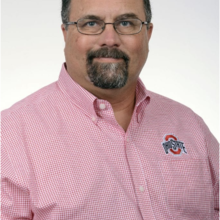IAWC M15 Wellness Counseling & Positive Psychology/Happiness
Discover techniques in wellness counseling and positive psychology to enhance happiness and resilience. Equip yourself with practical tools to improve mental well-being.
Module Overview
Handout M15 Positive Psychology
Handout M15 Happiness
IAWC M15 Positive Psychology Video
IAWC M15 Happiness Video
Required Reading
Required Positive Psychology Interventions in Counseling
Optional Happiness Research Findings
References Positive Psychology M15
M15 Module Evaluation
M15 Content Quiz

Recorded Program
Introductory
View the entire recording.
Complete the post-test with a passing grade of at least 80%
Complete the course evaluation

Ohio CSWMFT Approval
This training is approved for counselor, social work, and marriage and family therapy continuing education. In addition, it is approved by the Ohio Chemical Dependency Board for chemical dependency continuing education. Check CE Broker for detailed breakdown of CE types (provider number 50-24074).
AWSB Approval
NA- This course is not eligible for credit through the ASWB.
NBCC Approval
Mindfully has been approved by NBCC as an Approved Continuing Education Provider, ACEP No. 7322. Programs that do not qualify for NBCC credit are clearly identified. Mindfully is solely responsible for all aspects of the programs.
Individuals with comments/questions/concerns can contact Mindfully Academy via the information provided below:
513-939-0300
Charles Potter (Program Coordinator) [email protected]
Baumeister, R. F., & Vohs, K. D. (2024). The meaning of life and psychological well-being. Psychological Review, 131(2), 210-225.
Diener, E., Oishi, S., & Tay, L. (2022). Subjective well-being: The science of happiness and life satisfaction. Annual Review of Psychology, 73, 543-567.
Fredrickson, B. L. (2020). The broaden-and-build theory of positive emotions. Journal of Positive Psychology, 15(2), 105-120.
Kashdan, T. B., & Biswas-Diener, R. (2020). Curiosity and psychological growth. Journal of Happiness Studies, 21(5), 789-805.
Lyubomirsky, S., & Layous, K. (2019). How simple activities increase well-being. Psychological Science, 30(4), 345-360.
Neff, K. D. (2019). Self-compassion and emotional resilience. Mindfulness and Positive Psychology, 14(2), 98-115.
Peterson, C., & Park, N. (2021). Character strengths and virtues: A pathway to well-being. Journal of Personality and Social Psychology, 120(3), 415-432.
Ryan, R. M., & Deci, E. L. (2023). Self-determination theory and positive psychology. Motivation and Emotion, 47(1), 12-30.
Seligman, M. E. P., & Csikszentmihalyi, M. (2021). Positive psychology: An introduction. American Psychologist, 76(3), 217-230.
Sheldon, K. M., & Lucas, R. E. (2022). Sustainable happiness: Long-term effects of positive interventions. Journal of Positive Psychology, 17(1), 45-62.